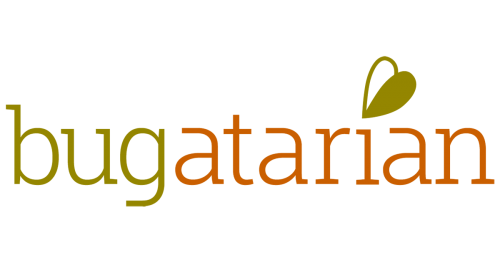 Interview with Nancy Chen, founder of Bugatarian
Interview with Nancy Chen, founder of Bugatarian
Hi Nancy, our first question is: how did you get involved in the edible insects world?
I’ve always been on the cutting edge of all things health and fitness related for as long as I can remember. Throughout my life, I spent countless hours researching new ways of eating, moving, and healing, from a holistic school of thought. Although I studied business at University, I even conducted formal research in medicine on the side because of my passion for health-related subjects. Therefore, it was only natural that I stumbled upon cricket protein and this niche community that is quite well-known amongst fitness experts and the environmentally conscious. Instantly, I was attracted to the touted benefits of eating insects as a sustainable protein and began to incorporate cricket flour into my everyday diet, starting with my morning smoothie. As I experimented more and more, I realized that insect powders could be an incredible kitchen staple, yet so few people knew about it.
How and when the project Bugatarian moved its first step?
As I created more recipes for myself utilizing insect powders and posting it on my personal social media, I started getting attention from my curious friends – some were fascinated and some were pretty repulsed. However, once I explained that insects are extremely sustainable, high in protein, low in carbs, and can taste good, people started to come around. My two colleagues, Charlotte and Lindsey, were early supporters of the concept and open to the possibilities. As a team, we decided to create Bugatarian’s blog and social media presence to educate our community on the benefits of entomophagy, and lead the movement in eating bugs in a trendy, gourmet, and approachable way.
What’s exactly the meaning of the word “bugatarian”?
To me, being a “bugatarian” or eating a “bugatarian” lifestyle simply means that you incoprorate insects into your diet. I’m not saying you need to give up all meat, poultry, fish, and dairy and substitute those protein sources with bugs. Rather than eliminating certain foods, I advocate others to introduce insects into everyday foods because small replacements can lead to big changes in mindset and the environment.
What’s the aim of your project?
Bugatarian has been highly well-received since our inception. We are very impressed by the amount of engagement and interest that our presentation of entomophagy is garnering. You will see us release a few of our bug-based food products (that you may have seen on our blog or Instagram) for people to purchase and try in the very near future! After all, entomophagy education is one thing, but we want to give the public an easy way to taste it for themselves.
What’s the future of entomophagy in the West?
Although the Western world is still behind on entomophagy due to societal conditioning, I am seeing huge strides in willingness to accept this way of eating. Now more than ever, consumers are invested in their personal health and look specifically for protein and functional foods in the marketplace. Additionally, the public is putting more attention into socially-responsible foods and processes, which lends well to the inevitable rise of entomophagy.
We at Bugatarian are always looking to collaborate with other leaders in this space to strengthen and accelerate this awesome movement!





